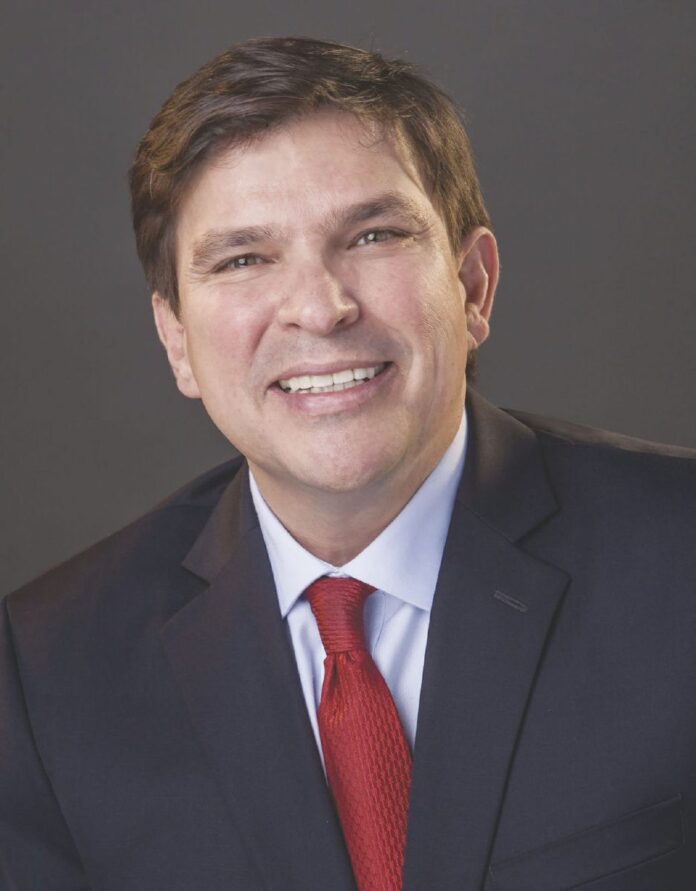McALLEN — U.S. Rep. Vicente Gonzalez wants Gov. Greg Abbott to pardon deported veterans for the minor crimes they committed in order to make it more feasible for them to return to the country they once served.
McALLEN — U.S. Rep. Vicente Gonzalez wants Gov. Greg Abbott to pardon deported veterans for the minor crimes they committed in order to make it more feasible for them to return to the country they once served.
Gonzalez, D-McAllen, detailed his request in a letter sent Tuesday to Abbott’s office in which he indicates the issue has quickly become his top priority since joining Congress earlier this year.
The freshman congressman has in fact been able to push the issue all the way to the White House, where he discussed it with President Donald J. Trump over dinner. Since then, he’s been able to file bipartisan legislation that addresses the issue at a national level.
But the federal government usually acts slower than the states, he said. So when he learned through a third party Abbott was sympathetic to the cause, he decided to appeal to him.
Abbott’s office did not return a request for comment made Tuesday via email.
“I think every governor in the union should pardon veterans and beat the federal government to the punch and allow them to come home,” Gonzalez said, citing a similar action taken by California Gov. Jerry Brown.
Earlier this year, Brown pardoned three veterans that had committed various crimes in California, wiping their criminal slate clean and making it easier for the deportees to return to the United States.
Gonzalez said most of the veterans who have been expatriated were in good standing with the military and have already paid their debt to society, having served prison terms before being deported.
“Many of these honorably discharged veterans are highly decorated and all had clean records prior to serving,” he said.
His legislation, Repatriate our Patriots Act, is also conservative in nature, Gonzalez said. It excludes those who have been convicted of crimes such as voluntary manslaughter, murder, rape, sexual abuse of a minor, child abuse and terrorism.
“A lot of these veterans got into a bar fight; got mad at their relatives and pushed; and that’s what causes them to get deported,” his chief of staff Jose Borjon said.
Most cases involved drugs and alcohol, with post traumatic stress disorder also playing a factor, the congressman said.
His office has been in contact with veterans from across the globe, including some currently living in Europe, Africa and South America, Borjon said.
There’s no definitive estimate on how many veterans have been deported over the years, but some groups believe there are between hundreds and thousands of servicemen and women who have been forced to leave the country.
Gonzalez’s bill — which has been referred to the House Committees on Armed Services, Judiciary, and Veterans Affairs — directs the U.S. Department of Homeland Security to begin keeping records of such cases and develop a program and application procedure to allow veterans who are eligible and were removed prior to the bill’s enactment to return to the U.S. as a lawfully admitted permanent resident.
Veterans who meet the bill’s requirements would also regain access to all military and veteran’s benefits.
“I’m really curious to see who is going to say no to stop the deportation of American heroes,” Gonzalez said. “I couldn’t imagine anything more un-American than that.”
He urged Abbott to use the current special session to address the issue at the state level for those who committed crimes in Texas.
“I think he should use this time wisely, and there’s nothing wiser than taking care of our veterans,” he said.
Gonzalez also reminded Abbott about statements the governor made to The Monitor in 2015, when he said, “These men and women put their lives on the line fighting for the freedom we all enjoy today. Their service to this nation may end when they leave the battlefield, but this country’s debt to them does not.”
Abbott, however, was not talking about deported veterans. He was addressing the need for more health care services offered to veterans in the area.




